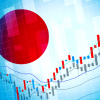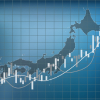Insights
Japan’s “new form of capitalism” in review
We review the “new form of capitalism”, a government plan to boost economic growth initiated by Japanese Prime Minister Fumio Kishida, who is enjoying a high public approval rating ahead of a closely watched upper house election.
New Zealand Equity Monthly – May 2022
Recent results in the New Zealand retirement sector have been strong almost across the board, with operators of retirement villages posting high sales of both new stock and existing units. Independent valuations of retirement village assets have also increased significantly across all operators.
New Zealand Fixed Income Monthly – May 2022
The beleaguered New Zealand bond market received some respite in May, while the Reserve Bank of New Zealand raised the Official Cash Rate by 50 basis points to 2%, with the market pricing in the central bank hiking rates again in July and August.
On the Ground in Asia-Monthly Insights: Asian Fixed Income-May 2022
We prefer Malaysian bonds, as we are of the view that inflation will be relatively better contained in Malaysia. We are keeping a neutral view on duration for low-yielding regions and countries such as Hong Kong, Singapore and Thailand. On currencies, we favour the Chinese yuan, Thai baht and Singapore dollar to Philippine peso and Indian rupee.
Navigating Japan Equities: Monthly Insights from Tokyo (June 2022)
This month we explain why losses by Japanese equities so far in 2022 have been limited relative to their peers; we also assess the positive impact a return of inbound tourism could have on Japan’s economy and markets.
Asian equity markets rose marginally in May, boosted by Shanghai’s plan to lift COVID-19 restrictions, even as the US Federal Reserve raised its benchmark overnight interest rate by 50 basis points. For the month, the MSCI AC Asia ex Japan Index rose by 0.5% in US dollar terms.
Japan’s “show me the money” corporate governance: 1Q record high
The just-released 1Q CY22 data on aggregate corporate profits in Japan was positive, with the overall corporate recurring pre-tax profit margin hitting a record high on a four quarter average. Both the non-financial service and manufacturing sectors contributed, with the latter surging to another record high. Note that the strong results occurred despite quite weak GDP, further proving the long-held theme of this report that profit margins remain on a structural uptrend despite sluggish domestic GDP growth, as shown in the charts below. Increased pricing power, coupled with improving corporate technological prowess and efficiency, should be credited for this, but improving global economic growth certainly was also a major factor.
For the last two centuries energy revolutions have created extensive platforms for subsequent technologies to drive wealth creation and raise living standards across the world. And this decade heralds the start of an energy revolution providing investors with lots of opportunities—the beginning of an energy broadband infrastructure boom.
Harnessing Change: An investment philosophy for Asia
Change is both more prevalent and significant in Asian markets. We believe that seeking to understand it is essential to deliver sustainable returns.
Balancing Act-Monthly insights: Multi-Asset Team-May 2022
The outlook is increasingly clouded as markets come to terms with a Fed that may do “whatever it takes” to contain inflation. Given that current inflationary pressures appear to be mainly driven by supply-side constraints and rising energy prices, it follows that the Fed would need to be willing to take the economy into a recession to meet its mandate.
On the Ground in Asia-Monthly Insights: Asian Fixed Income-April 2022
Increasing energy and food prices were the main factors that pushed most regional headline CPI prints higher in March. The Monetary Authority of Singapore aggressively tightened FX policy while China stepped up both monetary and fiscal policy support as the country struggled to contain its worst COVID-19 outbreak in two years.
Asian markets were downcast in April as investors were concerned about inflation and the likelihood of a larger-than-expected rate hike by the US Federal Reserve. For the month, the MSCI AC Asia ex Japan Index fell by 5.2% in US dollar (USD) terms.
New Zealand Fixed Income Monthly – April 2022
It has still been a tough year so far for New Zealand bonds amid pressure from inflation. That said, the market in New Zealand has been an outperformer among global peers since the beginning of 2022.
New Zealand Equity Monthly – April 2022
Despite fearmongering on demographics, Japan’s business has soared
Pundits need to be careful about scaring people regarding Japan and, thus, harming its economic future. This is especially true regarding recent high profile, wildly exaggerated tweets about demographics, a decades-old theme; clearly, this is a challenging theme, but Japan is certainly not going to disappear.
Global Unconstrained Bond Strategy Q2 2022 Outlook
We present our Q2 2022 outlook for the Global Unconstrained Bond Strategy which incorporates our core markets, emerging markets and global credit views.
Navigating Japan Equities: Monthly Insights from Tokyo (May 2022)
We discuss the implications of the weak yen, now considered by some as a menace rather than a blessing, for the Japanese market and economy. We also explain the potential impact of higher energy and commodity prices.
Ground-level observations from China
A trip back to China provided an opportunity to experience first-hand the impact innovative technology and digitalisation is having on a fast-changing urban society.
Balancing Act-Monthly insights: Multi-Asset Team-April 2022
Relief rallies are always encouraging but do not necessarily portray parting clouds for a return to “normal” market conditions. The market is still digesting a rather dizzying array of challenging dynamics that have unfolded quickly over the last quarter.
Global Equity Quarterly (Q1 2022)
We are keen to participate in the push towards a less carbon intensive future but want to do so in a balanced fashion, with one eye on the associated risks.
On the Ground in Asia-Monthly Insights: Asian Fixed Income-March 2022
We have eased our cautious view towards duration as we expect global rates to consolidate from current levels. On currencies, we are positive on the Malaysian ringgit, Indonesian rupiah and Singapore dollar.
Harvesting Growth, Harnessing Change - Monthly Insights: Asian Equity-March 2022
Asian stocks declined in March, dragged down by the Russia-Ukraine conflict. Lingering concerns over inflation also weighed on the equities markets. For the month, the MSCI AC Asia ex Japan Index fell by 2.8% in US dollar terms.
Navigating Japan Equities: Monthly Insights from Tokyo (April 2022)
This month we discuss the Japanese stock market’s recovery from the initial shock of the Russia-Ukraine war; we also assess the potential impact of a Russian debt default on Japan’s markets and financial system.
New Zealand Fixed Income Monthly – March 2022
The New Zealand bond market has experienced a rough start to 2022. The chief driving market factor has been the upward movement in reference interest rates, with the swap and government curves all moving up as central banks turn hawkish to fight inflation for the first time in a generation.
New Zealand Equity Monthly – March 2022
This month we focus on A-REITs, which are larger and more liquid relative to their New Zealand peers. One of the sector’s benefits over its New Zealand counterpart is its simple numerical advantage: Australia boasts 34 REITs, which is three times the number of REITs in New Zealand.






























